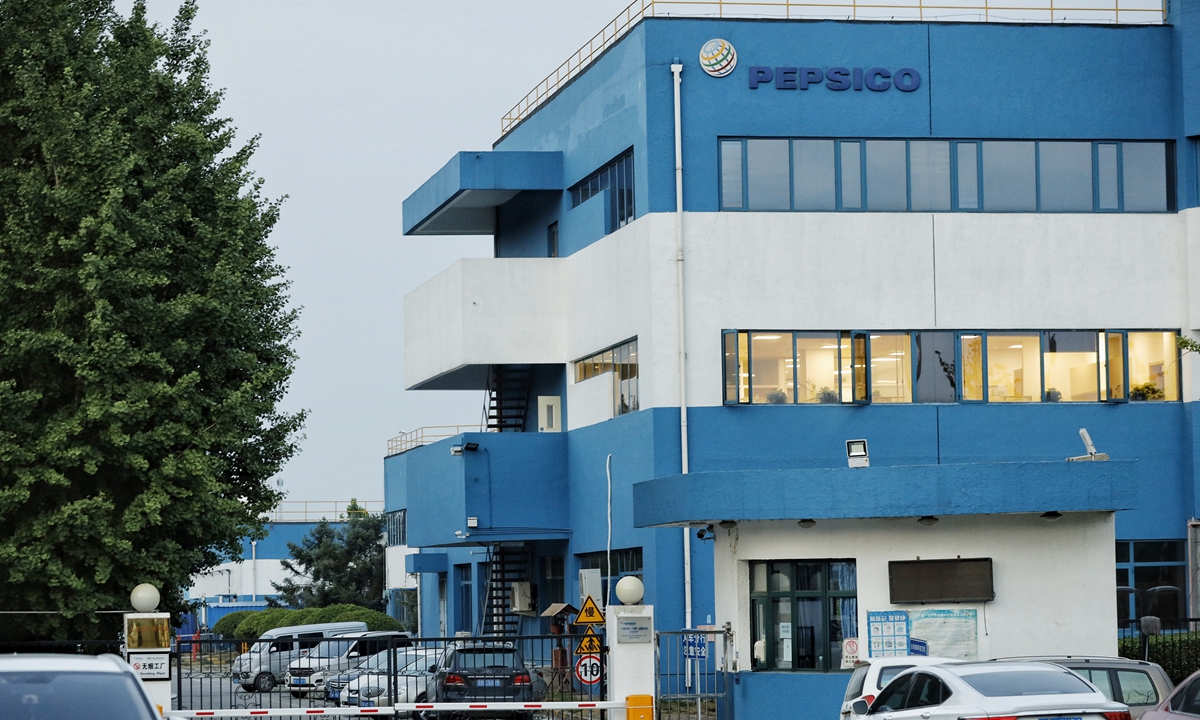SOURCE / INDUSTRIES
Inbound M&A cases surpass outbound in China for first time in a decade: report
Inbound M&A cases surpass outbound in China for first time in a decade

A PepsiCo branch in southern Beijing Photo: Li Hao/GT
Newly announced foreign merger and acquisition (M&A) deals into China surpassed Chinese outbound deals in terms of both volume and value for the first time in a decade in the first five months of this year, according to research by Baker McKenzie and Rhodium Group.
Relaxation of foreign investment regulations and a generally optimistic forecast on the outlook for China's economy might be the driving forces, experts said.
According to Baker McKenzie, the first five months of this year saw announced foreign M&A into China total $9 billion, despite overall stagnant outbound investment.
By contrast, overall outbound deals dropped about 71 percent in volume and 88 percent in value, year-on-year. From January to May, only 30 transactions were announced per month, compared with 90 per month from 2016-19.
Despite the hit taken by China's consumption, the overall outlook for China's economy remains optimistic, given the country's effective containment of the coronavirus and an early recovery, Dong Dengxin, director of the Finance and Securities Institute at the Wuhan University of Science and Technology, told the Global Times.
"Foreign buying in China has been very resilient since the beginning of the pandemic," Dong said. "With fundamentals such as the rise of the middle class, and the speedy recovery from the economic lockdown, foreign companies are still betting big on the Chinese market."
In the first quarter, several big foreign companies conducted sizable deals in China. In February, US beverage bellwether Pepsi acquired Chinese snack brand Be & Cheery's for $700 million.
Foreign companies are also being encouraged to invest in China by a relaxation on regulations. In April, China scrapped the limits on foreign equity thresholds in securities and fund management companies, and JPMorgan quickly took full control of a Chinese mutual fund joint venture.
China's outbound buying, however, is facing increasingly tough regulations.
Governments in many Western countries including Spain, France and Australia have been introducing rules intended to limit foreign acquisitions to protect assets in their own countries. Consequently, outbound deals made by Chinese firms in Europe and the US are in sharp decline.
Chinese outbound M&A deals from January to May fell 93 percent to $1.4 billion in Europe and fell 89 percent to $700 million in North America.
"In comparison to the boom years, China's outbound investors are simply not in the same position to ramp up overseas buying at the moment," the report said, quoting Thomas Gilles, chair of the EMEA-China group under Baker McKenzie.
"Chinese companies with global ambitions face a very different environment today, due to the combination of heavier debt loads, tighter domestic liquidity conditions, Beijing's controls on outbound capital flows and an increase in trade and investment restrictions abroad."
